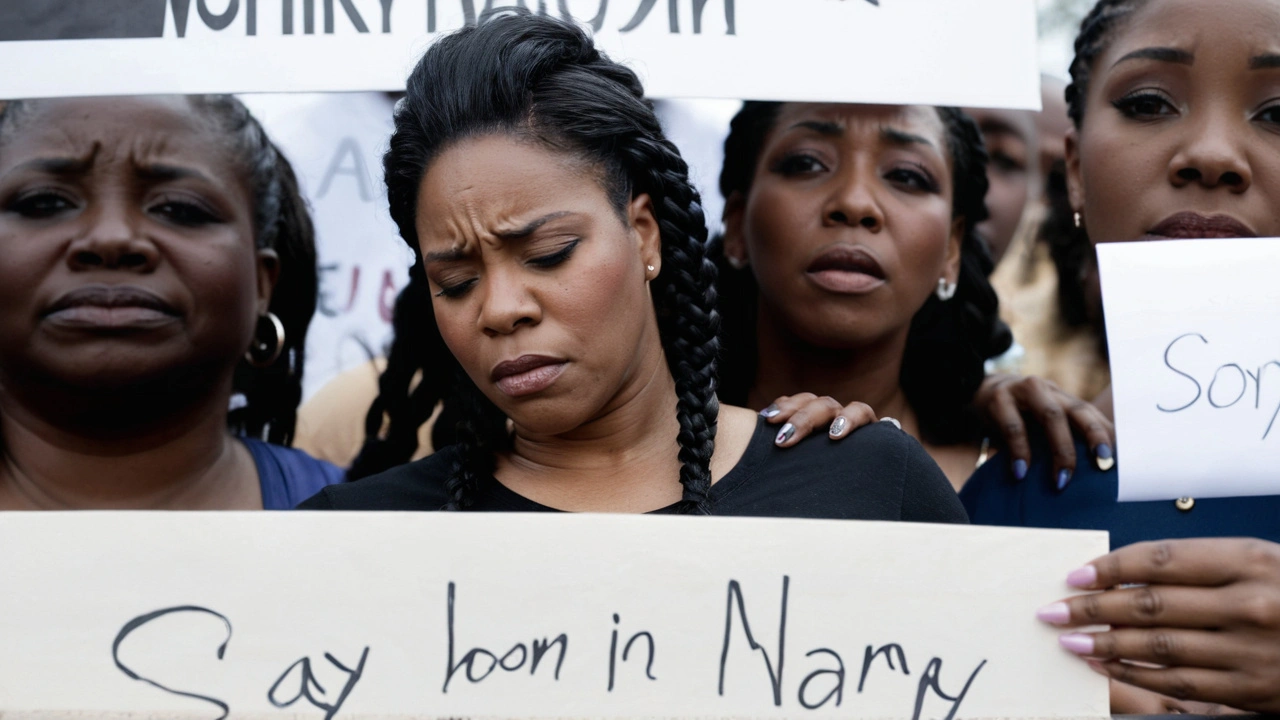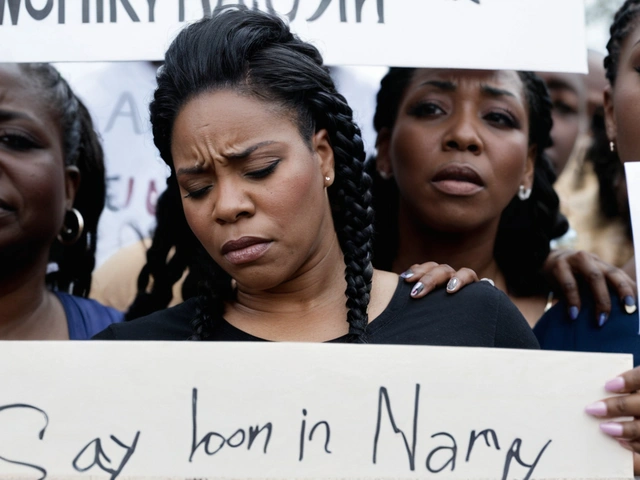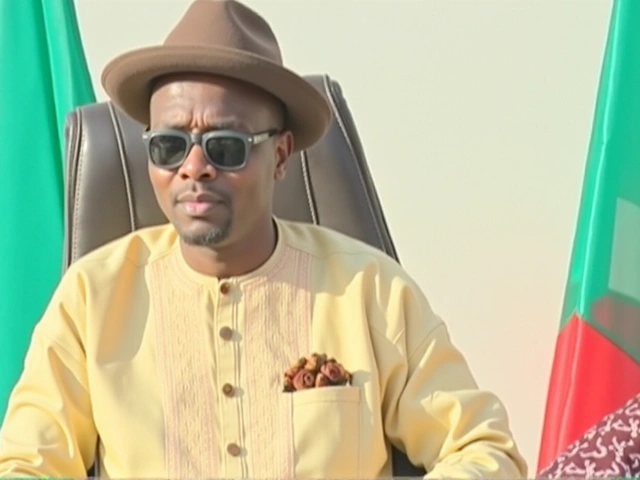Officer Charged with Murder after Fatally Shooting Sonya Massey in Illinois
In a distressing and tragic turn of events, Sean Grayson, a white police deputy, has been charged with the murder of 36-year-old Sonya Massey, a Black woman, in her Illinois home. This incident has once again thrust America's ongoing struggle with racial injustice and police violence into the national spotlight.
The Incident
On July 6, Sonya Massey made a frantic 911 call, reporting a potential intruder at her residence. This call was soon followed by one of the most grievous breaches of trust between law enforcement and the community they vow to protect. The 36-minute body camera footage subsequently released shows the sequence of events leading to Massey's untimely death. In this heart-wrenching video, two deputies, including Sean Grayson, are seen entering her home.
What unfolded next has sparked outrage and horror. The footage reveals Deputy Grayson ordering Massey to put down a pot of boiling water. What should have been a routine call rapidly escalated. Grayson threatened Massey, saying he would shoot if she did not comply. Moments later, he fired three shots, one of which struck Massey in the head, ending her life abruptly and needlessly.
Legal Proceedings and Charges
In the wake of the shooting, Deputy Sean Grayson was charged with first-degree murder, aggravated battery involving a firearm, and official misconduct. Grayson has pleaded not guilty, a plea that has only added to the anger and dismay of Massey’s family and the broader community. Legal experts have weighed in, suggesting that the defense may seek to argue that the shooting was a result of perceived threat, a common defense in cases involving police shootings.
This defense, however, has been criticized as 'disingenuous' by Ben Crump, a prominent civil rights attorney representing the Massey family. Crump's firm statement mirrors the broader sentiment among many Americans who see this case as yet another example of systemic racial injustice embedded within law enforcement practices.
Calls for Police Reform
The ramifications of this tragic incident extend beyond the courtroom. It has reignited calls for comprehensive police reform. Even President Joe Biden has weighed in, urging lawmakers to take substantive actions to prevent such incidents in the future. The call for reform is not new. For years, activists and community leaders have called for changes, emphasizing the need for increased accountability, better training for officers, and more rigorous oversight.
This incident is appallingly familiar. Sonya Massey’s death draws poignant parallels to other cases where Black individuals have lost their lives in their own homes at the hands of police. One might recall the heartbreaking case of Breonna Taylor, who was fatally shot by officers during a botched raid in Louisville, Kentucky. These incidents underscore the grim reality of racial bias and its fatal consequences.
Community and Family Reactions
The community's response to Massey’s death has been one of unified outrage and profound sadness. Protests have erupted in Illinois, with demonstrators demanding justice for Sonya Massey and an end to police violence targeting Black Americans. The Massey family is devastated. In press conferences, they have expressed their profound grief and frustration, calling for justice for Sonya and accountability from the police department.
Ben Crump, the family attorney, has been vocal in his condemnation of Deputy Grayson's actions and the systemic issues in policing that this incident represents. He has called for not only a conviction of Grayson but also legislative changes to address the root causes of such tragic events.
A Broader Trend
This case is part of a larger, disheartening trend. Statistics show that Black Americans are disproportionately affected by police violence. The deaths of George Floyd, Breonna Taylor, and now Sonya Massey, among others, highlight the persistent and dangerous racial disparities in law enforcement.
Efforts to reform policing practices have been met with both support and resistance. On one hand, there is a strong and growing movement advocating for changes that include de-escalation training, psychological evaluations for officers, and the allocation of law enforcement funds to social services. On the other hand, some law enforcement officials and their allies argue that these reforms could impede police effectiveness and officer safety.
Moving Forward
The path forward is undeniably complex and fraught with challenges. However, the tragic death of Sonya Massey and the subsequent public outcry offer a compelling impetus for continued advocacy and reform. Legal proceedings against Sean Grayson will be closely watched, not only for the justice of Massey’s family but also for what it signifies in the larger context of police accountability and racial justice.
In conclusion, the fatal shooting of Sonya Massey by a police officer in her own home is a stark reminder of the urgent need for systemic change in law enforcement. As the nation grapples with this latest tragedy, the calls for justice and reform grow louder, demanding that such incidents cease to be a recurring part of the American narrative.






Write a comment